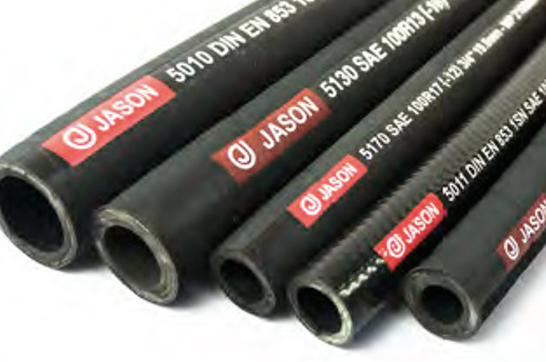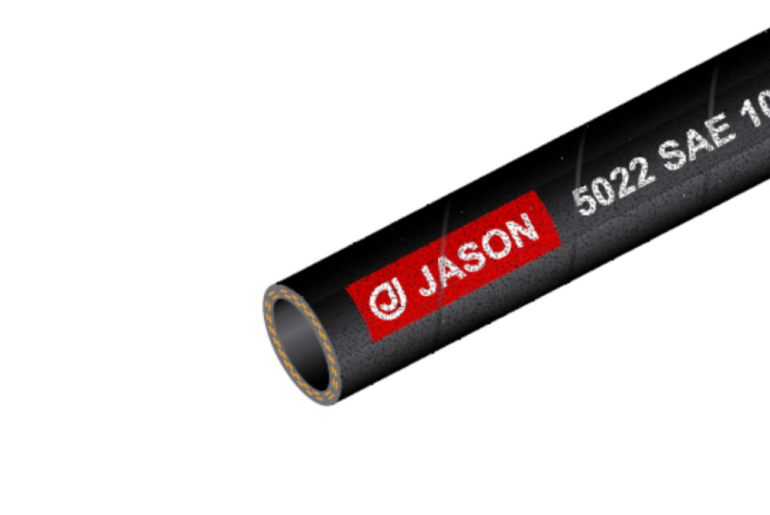Industrial hoses are essential components used in various industries to transport different materials, including liquids, gases, and solids. These hoses play a crucial role in maintaining a smooth flow of materials while ensuring safety and efficiency in industrial processes. In this comprehensive guide, we will explore various types of industrial hoses, their applications, and the importance of maintaining hoses for maximum efficiency.
What are Industrial Hoses?
Industrial hoses are flexible and durable tubes designed to transfer a wide range of materials safely. They are constructed from various materials such as rubber, PVC, polyurethane, and metals, depending on the intended application. These hoses come in different sizes and configurations to suit specific industrial needs.
Types of Industrial Hoses
Using high-quality industrial hoses is crucial to ensure optimal performance, safety, and longevity. Inferior hoses can lead to leaks, bursts, and other hazardous situations, potentially causing accidents and production downtime.
There are several types of industrial hoses, each designed for a particular purpose. Some common types include material handling hoses, air hoses, hydraulic hoses, chemical hoses, food-grade hoses, and petroleum and oilfield hoses, among others.

Material Handling Hose
Material handling hoses are robust and abrasion-resistant hoses specially designed to transport dry cement, grains, pellets, and other bulk materials. They are constructed to withstand rough handling and abrasive environments.
Material handling hoses find applications in industries such as construction, mining, agriculture, and manufacturing, where bulk materials need to be transferred efficiently.
Air Hoses
Air hoses are lightweight and flexible hoses capable of handling compressed air. They are reinforced to withstand high pressures and harsh working conditions.
Air hoses are commonly used in industries like construction, automotive, and manufacturing for pneumatic tools, air compressors, and other air-powered equipment.
Hydraulic Hoses
Hydraulic hoses are designed to transmit hydraulic fluid under high pressure to operate machinery, such as hydraulic excavators, loaders, and construction equipment.
Hydraulic hoses are prevalent in industries like construction, agriculture, aerospace, and mining, where hydraulic systems are crucial for powering heavy machinery.
Chemical Hoses
Chemical hoses are engineered to safely transfer various chemicals, acids, and solvents without any adverse reactions or leakage.
Chemical hoses are indispensable in chemical processing, pharmaceutical, and manufacturing industries where the safe handling of chemicals is paramount.
Food-Grade Hoses
Food-grade hoses are specifically designed to transport food and beverages without compromising their quality or safety.
Food-grade hoses are used in food processing, beverage production, dairy, and other related industries where hygiene and food safety are critical.
Petroleum and Oilfield Hoses
Petroleum and oilfield hoses are sturdy and resistant to extreme weather conditions, making them ideal for transferring oil and petroleum-based products.
These hoses are extensively used in the oil and gas industry for drilling, refining, and transporting petroleum products.
Proper Handling and Maintenance
Inspection and Testing
Regular inspection and testing of industrial hoses are essential to identify signs of wear, damage, or leaks, ensuring safety and performance.
Storage and Handling
Proper storage and handling of industrial hoses prevent unnecessary damage and extend their lifespan.
Maintenance Practices
Adhering to maintenance practices, such as cleaning, periodic checks, and replacements, ensures optimal hose performance and reduces downtime.
Conclusion
In conclusion, industrial hoses are indispensable components in various industries, facilitating the safe and efficient transfer of materials. Understanding the different types of hoses, their applications, and adhering to safety guidelines are crucial for optimal performance and preventing accidents. When selecting an industrial hose, always consider the specific requirements of your application to ensure the best fit and performance.
Feel free to visit HVH Industrial Solutions if you have any questions, need more information, or are interested in buying any type of hose..
Also, you can check our Engineering Blog for more informative articles.

